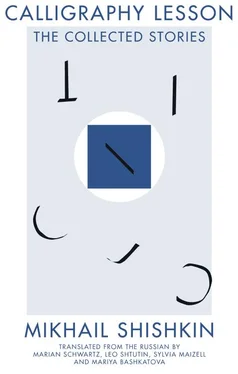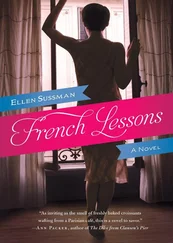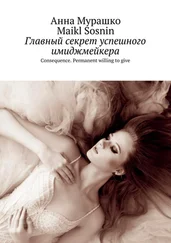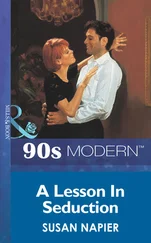Mikhail Shishkin - Calligraphy Lesson
Здесь есть возможность читать онлайн «Mikhail Shishkin - Calligraphy Lesson» весь текст электронной книги совершенно бесплатно (целиком полную версию без сокращений). В некоторых случаях можно слушать аудио, скачать через торрент в формате fb2 и присутствует краткое содержание. Город: Dallas, Год выпуска: 2015, ISBN: 2015, Издательство: Deep Vellum Publishing, Жанр: Современная проза, на английском языке. Описание произведения, (предисловие) а так же отзывы посетителей доступны на портале библиотеки ЛибКат.
- Название:Calligraphy Lesson
- Автор:
- Издательство:Deep Vellum Publishing
- Жанр:
- Год:2015
- Город:Dallas
- ISBN:978-1-941920-02-2
- Рейтинг книги:4 / 5. Голосов: 1
-
Избранное:Добавить в избранное
- Отзывы:
-
Ваша оценка:
- 80
- 1
- 2
- 3
- 4
- 5
Calligraphy Lesson: краткое содержание, описание и аннотация
Предлагаем к чтению аннотацию, описание, краткое содержание или предисловие (зависит от того, что написал сам автор книги «Calligraphy Lesson»). Если вы не нашли необходимую информацию о книге — напишите в комментариях, мы постараемся отыскать её.
Calligraphy Lesson — читать онлайн бесплатно полную книгу (весь текст) целиком
Ниже представлен текст книги, разбитый по страницам. Система сохранения места последней прочитанной страницы, позволяет с удобством читать онлайн бесплатно книгу «Calligraphy Lesson», без необходимости каждый раз заново искать на чём Вы остановились. Поставьте закладку, и сможете в любой момент перейти на страницу, на которой закончили чтение.
Интервал:
Закладка:
Pay no attention to me, Evgeny Alexandrovich, I just remembered something that happened yesterday. You don’t know whether to laugh or cry. You know Zhdanov? Well, you’ve seen him at our house—a second cousin twice removed and a dreadful self-centered fool. I happened to be home alone. My husband had gone on an inspection tour, little Sasha was with his grandmother, and Vova’s been in college for two months. Out of the blue, Zhdanov showed up. “Larochka,” he said with a leer, “I came to have my way with you!” “What’s this, Zhdanov? Has passion got the better of you? You know I never thought of myself as a femme fatale!” “Passion? Hardly. It’s just that you talk so much about morality that this will be my last argument in our debate. I came merely to tempt you and lead you into sin, that’s all.” “But you’re repulsive, Zhdanov!” I told him. “Believe me, that doesn’t matter!” and he reached under my skirt. I wanted to laugh, slap him, pour water over his bald head, but I was overtaken by apathy, passivity. I can’t explain. It all just happened, moreover I felt nothing, absolutely nothing. Zhdanov grunted and wheezed and growled. Then he stretched out across the bed, flopping his belly to one side, and lit up. I said, “What a smart aleck you are, Mishenka! I just might go and fall in love with you!” And he said, “What do you mean? I love my wife and children.” He finished smoking and reached for me again. Suddenly there was a noise in the front hall. Before I could figure out who it might be, my husband was standing in the doorway. Dead silence. Finally Zhdanov said, “Well, time for me to go!” and started pulling on a sock. My husband hemmed and hawed in a strange, old womanish voice. “Didn’t you see the telegram? I left it by the mirror. Vova’s coming home today. They gave him leave.” “And here he comes!” Zhdanov said, pointing out the window. Indeed, Vova was opening the gate, wearing his uniform—smart, grown-up, handsome. We rushed to get dressed. Zhdanov couldn’t seem to find his other sock, so he put his boot on his bare foot. My husband made the bed. I didn’t even have time to put my dress on properly, let alone comb my hair! Vova fell on my neck immediately and then started hugging his father and then hugged Zhdanov. “Uncle Misha! Lord, how glad I am you’re here! I love you all so much!” He grabbed a plate of pirozhki and started cramming them into his mouth, one after another, poor kid. I broke down in tears, kept kissing his prickly nape, his coarsened hands, his pimply cheeks, his sweat-soaked tunic. Zhdanov wanted to leave, but Vova wouldn’t let him. “Oh no, Uncle Misha, you’re staying for dinner!” Vova told stories nonstop about the barracks, his idiot commanders, how you have to eat everything with a spoon and you practically have to fight to get an apple for dessert. The three of us behaved as if nothing special had just happened. And maybe nothing so terrible had. Before Vova could finish his cup he jumped up from the table, plopped down on the sofa, shut his eyes, and sighed. “God, this is great!”
Yes, you’re quite right. Nothing so terrible! There was a silly embezzlement case that crossed my desk. This cashier, you see, a respectable type, a decent-looking man, had embezzled a lot of money. He denied all the charges and said he’d been put up to it by his thief of a boss. All in all he behaved like any honest man insulted by suspicions would. The whole case was proceeding toward acquittal. The defense presented spotless references and letters of praise for his many years of honest service. The man also won people’s sympathy because his wife and three identically dressed sons were sitting in the courtroom in the front row. From time to time the father would buck them up, say something loudly across the entire courtroom—that they shouldn’t cry, that he would certainly be acquitted because there was justice in this world, it could not fail. In essence, the entire case boiled down to a single note of a few lines submitted by the investigation. It had allegedly been written by the defendant and was proof of his guilt. Burinsky himself, the famous expert, was called in specially from Moscow to testify. Everything hinged on his opinion. So on the third day, I think, the case got to the point of his expert testimony. Burinsky rose—a large, stern, majestic man two heads taller than everyone else. Robinson himself would have envied that head of hair and beard. Everyone held their breath, gazing at the celebrity. He paused and then growled resoundingly, “This is the note.” Burinsky shook the sheet of paper over his head. “And this is a handwriting sample.” He shook another sheet. “And here is my conclusion. This man is innocent!” Pandemonium! The courtroom burst into applause and people were practically hugging each other. Burinsky sat back down and began raking his beard with an indifferent look on his face. A few formalities remained. The note, the letter, the handwriting taken for a sample, and the expert analysis lay on my secretarial desk. I couldn’t believe my eyes. Both were written by the same person. “Wait a minute!” I exclaimed. “What do you mean? This is the same hand!” I felt the eyes of the entire courtroom on me. “Just look. Here and here!” Burinsky tossed back his gray curls and asked in amazement. “What are you actually implying?” “Look here. Can’t you see?” I began explaining. “Just take the sweep of the pen. In handwriting the most important thing, after all, is the connection between letters. You can’t forge or alter that. Just look at the m , n , and н . They’re all drawn with their bottoms downward, like the u . And believe me, this is a sure graphological sign of goodness, openness, and emotional gentleness. These letters, on the contrary, were written with arches and betray secrecy and mendacity. Notice,” I continued, “both in the note and in the letter, the pressure is not firm. No sooner does the pen touch the page than it encounters the paper’s resistance, and an inevitable struggle ensues. A pen pressed into the paper reflects urge, will, obstinacy, contrariness, and belligerence. Here, rather, the hand is yielding, a sure sign of susceptibility, impressionability, sensitivity, delicacy, and tact. In both the letters are small, which indicates a sense of duty, self-restraint, and love for hearth and home. Note also how fat the letters are and how open they are at the top of the vowels. Altogether this is proof of credulity, peaceableness, a highly developed capacity for sympathy and deep attachment. Moreover, I dare say that this person possesses both taste and a sense of beauty. Just look at the elegant but perfectly unadorned capitals, at the wide, almost verselike left margin, at the indent, which starts nearly halfway across the page. The letters are almost not connected to each other, indicating a contemplative, lofty nature, detachment from the mundane, and a rich mental life. A signature without any flourishes indicates intellect. Oh, you have before you an exceptional person. Just look at the incredibly unique shape of the letters. Do they not, all else aside, betray a single patrimony for the neat letter and the messy note? The purely outward, superficial dissimilarity can be explained simply: the note was written in the dark, hence the interlacing of the uneven lines and the blind muddle of suddenly looming letters and words. You see, even a moment’s inspection of these letters is enough to be convinced of their kinship. You have before you brothers and sisters in ink, twins from a single pen! This hook over the й alone is priceless, taking a running start and sliding into the question mark! And how could you ever confuse the adjacent к pinned to it? Or this б , which keeps trying to latch onto its neighbor? And the ц— you must take a close look at this little Jewess which Cyril abducted from Solomon’s alphabet—all the grace in the steep line of her flaunted hip!” Everyone was silent, dumbstruck, but I kept talking and talking, powerless to stop myself. “Without a doubt, the person who wrote this is extraordinary, or rather, artistic. Hence the unevenness, the anxiety, the total lack of rhythm (which indicates emotional contentment), death poured outward for the time being. A tremendous, unconscious life force drives the ends of the line sharply upward. The diacriticals and the marks between the lines stretch and break off. They try to tear the word to shreds, annoyed over what has been left undone, unrealized, overlooked!” At this Burinsky rose from his seat. He walked toward the door, donning his hat as he went, and when he pulled even with me hissed through his teeth, “Fool!” Regardless, the court scheduled a second expert opinion, and of course they declared that the cashier had written the note. He was convicted, and after the hearing, while everyone was retrieving their coats in the checkroom, the judge came up to me and said, “God will punish you. Wait and see!” But it’s all right. I’m alive. Alive, breathing, eating, and using up a stack of paper every day. My pen still scratches, punishes, and pardons. What’s so important about that? I’m perfectly willing to admit that right now, this very minute, he may be whimpering from hunger, or freezing, or has had his teeth knocked out and is being raped by his cellmates, or that he’s not even alive but lying in some morgue with a toe tag, or has simply faded away with time, written in cheap ink. Not that there’s anything so awful about that. My God, what makes him any better than me or even you, that we should have regrets? Because there has yet to be a case, even the longest and most convoluted, at the end of which, when all was said and done, a pen did not place a period.
Читать дальшеИнтервал:
Закладка:
Похожие книги на «Calligraphy Lesson»
Представляем Вашему вниманию похожие книги на «Calligraphy Lesson» списком для выбора. Мы отобрали схожую по названию и смыслу литературу в надежде предоставить читателям больше вариантов отыскать новые, интересные, ещё непрочитанные произведения.
Обсуждение, отзывы о книге «Calligraphy Lesson» и просто собственные мнения читателей. Оставьте ваши комментарии, напишите, что Вы думаете о произведении, его смысле или главных героях. Укажите что конкретно понравилось, а что нет, и почему Вы так считаете.












